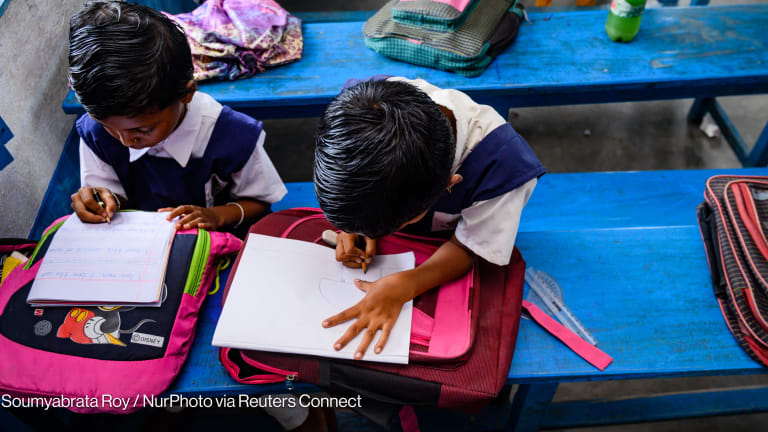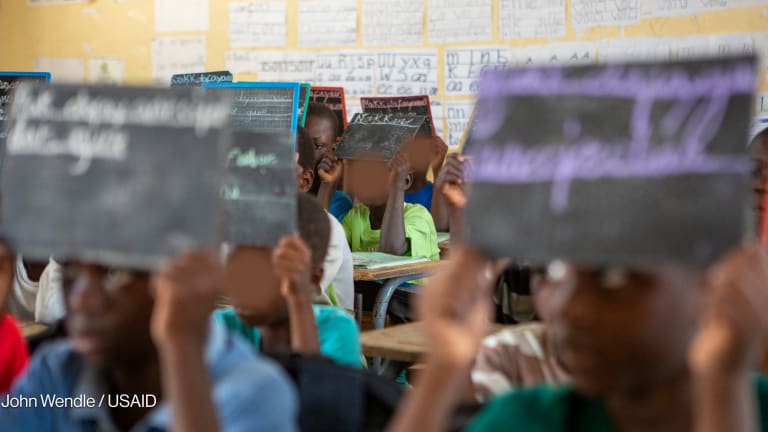It’s Friday afternoon at Iganga High School in Eastern Uganda, but the students aren’t thinking about the weekend. One group sinks their hands into a papier mâché paste, another stirs a foamy liquid. This is no art project or science lesson; it’s business. The end products — egg trays and soap, respectively — will provide an income for some pupils.
The students here are learning from a unique curriculum developed by Educate!, a social enterprise that helps young Ugandans start businesses while in school, through a combination of weekly classes, mentoring, business clubs and teacher training. Educate! is today offered in about 350 schools — about 12 percent of Ugandan secondary schools — and the aim is to reach 1000 schools nationwide by 2024.
Unlike the teacher-led, theory-based classes students are used to, this kind of learning is utterly practical. “We really make them scratch their heads,” James Otai, a program officer at Educate!, told Devex. “[We ask them] ‘In your community, what is the problem? And what can you, as an Educate! scholar, come up with to solve that problem?’”








